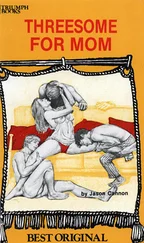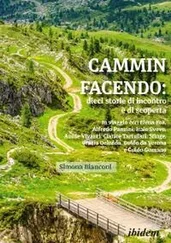Simon Foster - CHINA's Three Gorges & Xi'an
Здесь есть возможность читать онлайн «Simon Foster - CHINA's Three Gorges & Xi'an» весь текст электронной книги совершенно бесплатно (целиком полную версию без сокращений). В некоторых случаях можно слушать аудио, скачать через торрент в формате fb2 и присутствует краткое содержание. Год выпуска: 2010, Издательство: Hunter, Жанр: Старинная литература, на английском языке. Описание произведения, (предисловие) а так же отзывы посетителей доступны на портале библиотеки ЛибКат.
- Название:CHINA's Three Gorges & Xi'an
- Автор:
- Издательство:Hunter
- Жанр:
- Год:2010
- ISBN:нет данных
- Рейтинг книги:4 / 5. Голосов: 1
-
Избранное:Добавить в избранное
- Отзывы:
-
Ваша оценка:
- 80
- 1
- 2
- 3
- 4
- 5
CHINA's Three Gorges & Xi'an: краткое содержание, описание и аннотация
Предлагаем к чтению аннотацию, описание, краткое содержание или предисловие (зависит от того, что написал сам автор книги «CHINA's Three Gorges & Xi'an»). Если вы не нашли необходимую информацию о книге — напишите в комментариях, мы постараемся отыскать её.
CHINA's Three Gorges & Xi'an — читать онлайн бесплатно полную книгу (весь текст) целиком
Ниже представлен текст книги, разбитый по страницам. Система сохранения места последней прочитанной страницы, позволяет с удобством читать онлайн бесплатно книгу «CHINA's Three Gorges & Xi'an», без необходимости каждый раз заново искать на чём Вы остановились. Поставьте закладку, и сможете в любой момент перейти на страницу, на которой закончили чтение.
Интервал:
Закладка:
Ming Dynasty (1368-1644)

Hongwu
Zhu Yuanzhang took the imperial name Hongwu, established his capital at Nanjing(Southern Capital) and gave the new dynasty its name, Ming meaning brightness. The Ming certainly ruled with far more power than their Mongol predecessors and succeeded in restoring the country to centralized control after a century of foreign rule. While exerting less cultural influence than either the Han or the Tang, the Ming lasted some three centuries and during this long rule the Forbidden Citywas built after Yongle, the second emperor, relocated the capital to Beijing. Major improvements were made to the Great Walland the imperial kilns at Jingdezhenproduced the distinctive fine white and blue pottery for which the Ming dynasty is still famous today. Novels also found a place in Ming libraries and classics, such as The Outlaws of the Marsh and Romance of the Three Kingdoms , were written in vernacular language, which made them accessible to a wider audience.
Zheng He
The Ming dynasty was, for the most part, an inward-looking period that saw ties severed with many old trading partners and thus decreased the amount of contact China had with other countries. But in the early 15th century this was not yet the case and the emperor Yongleordered enormous fleets to explore the oceans in search of knowledge and trade. Commanded by the Muslim eunuch admiral, Zheng He, the armadas that set sail from Nanjing were, by far, the biggest the world had ever seen, both in the number of ships and vessel size. The largest baochuan (treasure ships) were over 400 feet long, dwarfing all that had come before. In his seven great voyages, Zheng He sailed as far as the west coast of Africa, and established trading links in Malacca(in modern day Malaysia) and on India's Malabar Coast. But, shortly after Zheng He set sail on his final voyage, the Forbidden City was struck by lightning, which was seen as a sign of the gods' displeasure and almost all records of Zheng's grand journeys were destroyed. It is only in the past few years that these ventures have surfaced again and recent research suggests that it was the imperial fleet under Zheng He that paved the way for the likes of Vasco de Gamaand Magellan.
Close of the Ming
The later Ming years produced a string of weak rulers and, as before, power fell into the manipulative hands of court officials and eunuchs who bickered and squabbled but did little to support the country. By the start of the 17th century the country's frontier defenses had fallen apart and a series of peasant uprisings further weakened the Ming power base. In 1644 rebel forces under Shaanxi-born Li Zicheng stormed the capital and the last Ming emperor fled to Jingshan Park, just behind the Forbidden City, where he ended his own life and, with it, the Ming dynasty.
Qing Dynasty (1644-1911)
The Manchudescendants of the northeastern Jurchen Jin dynasty saw their chance and moved in, ejecting Li Zicheng and claiming the capital as their own, although it took another few decades before the whole country was under the control of the newly-formed Qing (meaning Clear) dynasty. The Qing immediately imposed their Manchu culture onto the Chinese, obliging men to wear traditional pigtails and making their native tongue the official language. While Ming officials were maintained in some ranks to appease the Chinese, the top posts were reserved for those of Manchu stock. But, as with every culture that had come before and tried to absorb China into its own mold, the Manchus were quickly assimilated into Chinese culture. By the late Qing, its emperors were so cast in the Confucian model that anti-Manchu sentiment had almost ceased to be an issue.
A Golden Age

Lama Temple
The early years of the Qing dynasty saw some of China's most proficient leaders and the reigns of Kangxi(1661-1722), Yongzheng(1723-35) and Qianlong(1736-95) are remembered as a golden age. During the 18th century the Qing doubled China's territorial size. Kangxi quashed rebellions and the empire was expanded to include Mongolia, Tibet, Nepal and parts of Central Asia. Kangxi was a patron of the arts and his reign also saw the construction of the Lama Templein Beijing and the Mountain Retreatin Chengde, whose northerly temples were added to by Qianlong. Yongzheng and Qianlong's stable periods of rule and continued expansion promoted growth in industry and commerce, while the peasantry was appeased with tax reforms and flood control measures. This was China's last age as a great imperial empire and, at the start of the 19th century, the unified country stood as one of the most wealthy and powerful nations in the world.
Foreign Encroachment & the Opium Wars
Western interest in the fabulously wealthy but militarily weak Middle Kingdom grew as more and more merchants made their way to China's shores hoping for a slice of the action. The British East India Companywas keen to stake its claim and in 1793 Lord Macartney, George III's envoy, was given an audience with Emperor Qianlong in Chengde, but his refusal to kowtow was a sign of things to come. The Qing did not see the need for Western goods or influences and were not prepared to sign any kind of trading agreements with their perceived subordinates. The East India Company wasn't about to give up on such a lucrative opportunity and began to trade Indian-grown opium, rather than silver, in exchange for silk and tea. Addiction became rife and thus demand increased, which led to a futile attempt to ban the trade. In 1840 the emperor ordered the destruction of 20,000 chests of opium under Lin Zexu, which provoked the First Opium War(1840-2). Two years of bombardment later, the Chinese capitulated and were forced to sign the humiliating Treaty of Nanjing, which included a substantial indemnity payment along with the opening up of new ports and the ceding of Hong Kong to Britain. The Second Opium War(1856-60) brought more losses and underlined the fact that, technologically, China had some catching up to do. Further parcels of land were ceded to Britain, France, Germany, Japan ,Russia and the US. Anti-Manchu feeling, long buried just beneath the surface, began to rise.
The Taiping Uprising (1850-64)
The insult of these treaties and their crippling indemnities spurred a number of popular rebellions, the most serious of which was the anti-Manchu Taiping Uprising. Founded by Hong Xiuquan, who believed he was the Son of God and brother of Jesus, this quasi-Christian cult acquired a million-strong army which captured much of the fertile Yangzi valley and established a capital at Nanjing. The uprising's focus on equality has led many to view it as a precursor to communism, while its draconian laws and desire to obliterate all that had come before is comparable to the destructive might of the Cultural Revolution. The uprising was eventually quashed with European support in 1864, but it left millions dead and other revolts broke out, notably the Nien (1853-68).
Empress Dowager Cixi (1835-1908)
It was during the Taiping Rebellion that the Empress Dowager Cixirose to prominence. Originally a concubine, Cixi managed to maneuver her way to the top and manipulate the ineffective emperors, ruling from behind the scenes between 1861 and 1908. Known as "the Old Buddha,” she bore a son to Emperor Xianfeng, who became Emperor Tongzhi and, after outliving him, she installed her nephew, Guangxu, as emperor. After Guangxu's involvement in the 100 Days Reform Movement in 1898, Cixi kept him under lock and key in the Summer Palace while she ruled in his name. The Empress Dowager proved to be a dominant, yet inept leader and, fearing loss of her power, she rejected all attempts at much-needed reform until it was too late. Her lack of judgment catalyzed the Qing's downfall and her most crass misallocation of funds is still there to see today - the grand marble boat that sits in Kunming Lake at Beijing's Summer Palace was built using finances intended to bolster the navy!
Читать дальшеИнтервал:
Закладка:
Похожие книги на «CHINA's Three Gorges & Xi'an»
Представляем Вашему вниманию похожие книги на «CHINA's Three Gorges & Xi'an» списком для выбора. Мы отобрали схожую по названию и смыслу литературу в надежде предоставить читателям больше вариантов отыскать новые, интересные, ещё непрочитанные произведения.
Обсуждение, отзывы о книге «CHINA's Three Gorges & Xi'an» и просто собственные мнения читателей. Оставьте ваши комментарии, напишите, что Вы думаете о произведении, его смысле или главных героях. Укажите что конкретно понравилось, а что нет, и почему Вы так считаете.












